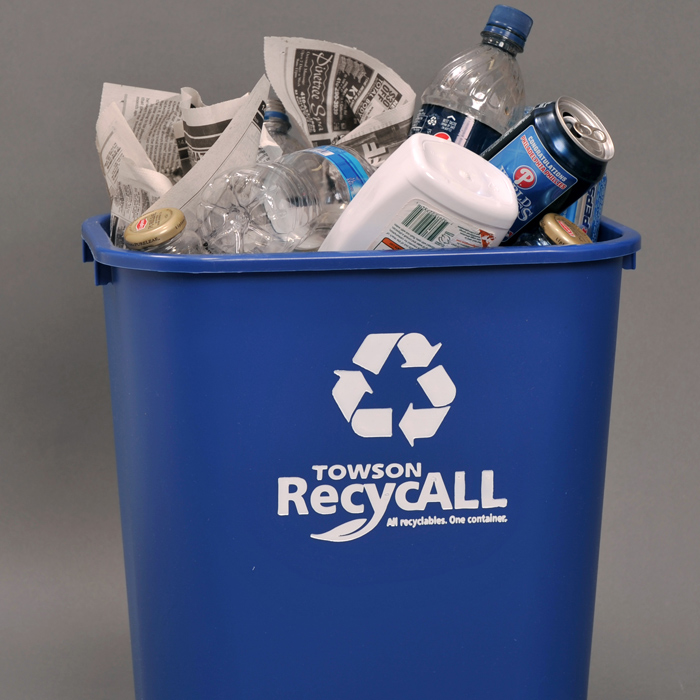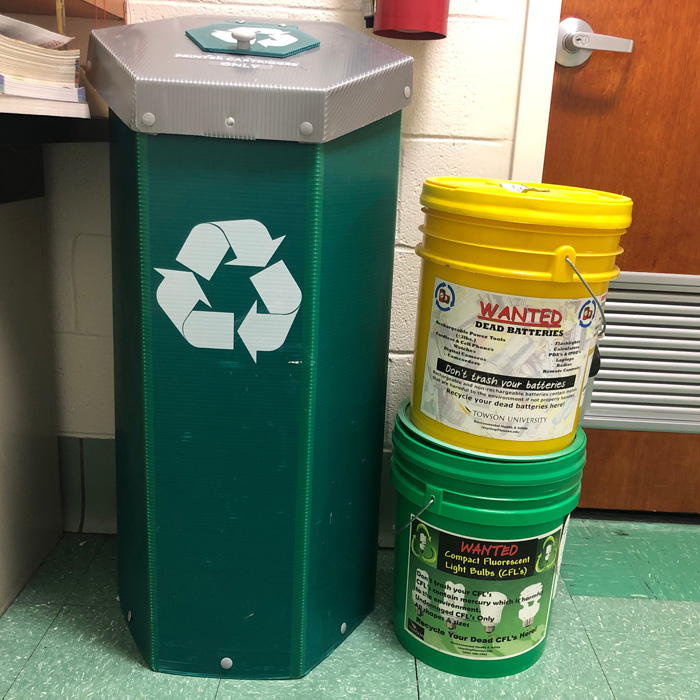Single stream recycling allows you to place all general recycling into one container.
At TU, paper, plastic, glass and metal can be placed in one bin. All items must be
clean and liquid-free. If you live off-campus, check with your local municipality
for the recyclables collected in your area. You can recycle:
- bottles, cans, jars, jugs
- wide-mouth plastic containers
- clean paper, junk mail, cardboard
Placing these items in your recycling bin can contaminate single stream recycling:
- utensils, plates, snack wrappers
- food, liquids, soiled pizza boxes
- plastic "clam shell" style containers
- plastic bags, plastic film, Styrofoam packaging, binders
- electronics, printer cartridges, CFLs, rechargeable batteries
- construction debris
You can chose to take your plastic bags to certain grocery stores to recycle. Unfortunately,
plastic bags in a single stream system pose a problem at recycling facilities. They’re
known as “tanglers” and get stuck in machinery, halting the recycling line. Baltimore
County created a short video called “Tangled Up” (YouTube) to explain.



